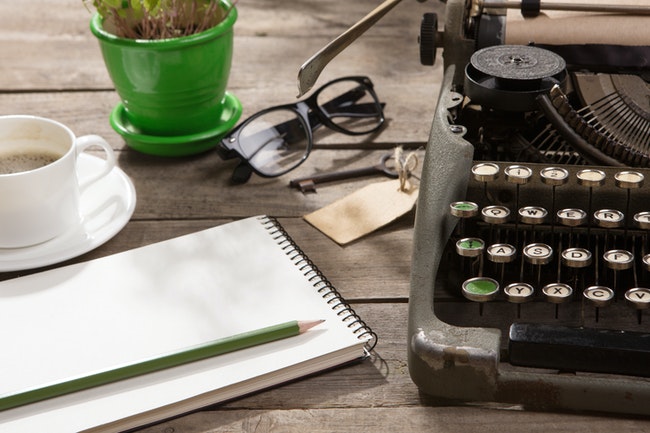
On my mantle sits a glassed case holding a flag last touched by a gloved soldier and a grieving mother.
A flag that was folded carefully and respectfully, honoring the life of a young paratrooper that was killed in action in Normandy, France June 28, 1944. That life belonged to a great uncle that died three decades before I was born—and who lived only half the years I have. I was honored when my grandmother gave me the funeral flag and some of the personal effects of her younger brother.
While studying World War II history with my son for school, I took the opportunity to explain about the flag over our mantel and the soldier who had lain under it. I pulled out a small brown box from the War Department addressed to my great-grandparents, and gently laid its contents on the desk between us. A worn, white New Testament, a parachutist badge, a cigarette case, some foreign currency, a few medals and badges, and a smaller box with a Purple Heart in it.
I watched my son reverently touch the objects owned by a person he’d never known, from a war that just minutes before had been ancient dates in a history book. As he ran his fingers over the discolored badges, I said a prayer of thanks that those medals can’t talk—or imagine the ugliness they could share? Ugliness that I have been sheltered from because men and women, like my great uncle, experienced it for me—for us—for America.
When I was younger, the school days began by facing Old Glory and reciting the Pledge of Allegiance. I took pride in repeating an oath that great men for generations before me have stood tall and vowed. Watching the stars and stripes fly, it made me feel pride in knowing I was a part of this nation—related to the great people who have sacrificed so I could enjoy its liberties.
During Reagan’s presidency he said the flag “signifies the qualities of the human spirit we Americans cherish. Red for courage and readiness to sacrifice; white for pure intentions and high ideals; and blue for vigilance and justice.”
The flag means different things to different people, and while it seems to be an unpopular opinion, I am so proud of our grand old flag. Whether it is flying high in the breeze, or folded tightly on someone’s mantel, the emotions that it evokes from me are patriotism and pride. Our country’s past is not pristine—which country’s is? It’s striped—just like our flag. But also like our flag, there are stars on the horizon that we keep reaching for—striving for. Because we are Americans. Because we are the home of the free and the brave—a nation united under God.
Not everyone believes that though—and that is their right—a right given to them by soldiers who were buried under flags just like the one sitting on my mantel. But being able to disagree with people while still supporting their right to a different opinion is one of the many things that makes America great.
Growing up in a big, boisterous family meant that there were often loud, intense disagreements. There were discussions about Fords versus Chevys, and John Deeres versus Masseys. There were also members on both sides of political parties, which always kept things riveting, especially around elections—but the adults in our family showed us cousins how to disagree (often vehemently) without being disrespectful.
So when it comes to taking a knee during our National Anthem, I can’t help wondering how many folded flags rest sad and proud on mantles across the United States? I’ll defend your right to disagree with me to the death—disagree, but not disrespect. This is a country that my family, along with many, many others, have died for, and those fallen soldiers and their families have sacrificed enough without having the pride of serving this great country taken from them as well.
In today’s world, conservative values are often scorned as being redneck. And maybe they are. Because at the end of the day, when my family comes home, dirty after a long day of farming in the sun—our necks often have a touch of red—and it’s not entirely skin deep. My husband and I both grew up knowing what the sound of a belt being pulled through denim sounded like. We learned the Ten Commandments, called our elders “mister” or “missus,” and learned the proper respect for guns.
We celebrate the 4th of July, we remember 9-11, and we believe that Christmas is more than Santa. If that makes us redneck, then I guess I’m okay with that, because my family will always stand for the flag—and save our kneeling for the cross.
Briana Walker is an eastern Oregon farmer, author and contributor to the Malheur Enterprise.




